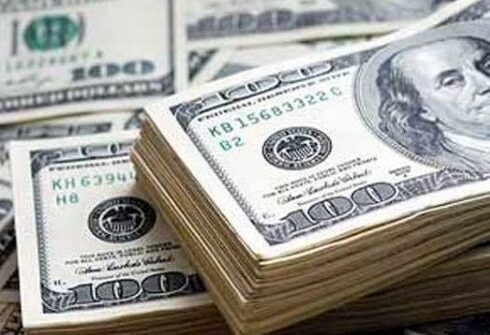The dollar goes up a little bit, making up for losses caused by Powell.

As fears of a recession grew, Treasury yields went down, which made the U.S. dollar go up a little bit in early European trading on Thursday.
At 3:10 AM ET (07:10 GMT), the Dollar Index, which compares the U.S. dollar to a basket of six other currencies, was slightly up at 104.010. It has fallen a lot since June 15, when the Federal Reserve raised interest rates by 75 basis points when it hit a 20-year high of 105.79.
Since then, the dollar has fallen because markets are getting more and more worried that the Fed’s efforts to stop historically high inflation by aggressively tightening money will cause a recession.
Fed Chair Jerome Powell added to these worries on the first day of his two-day testimony to Congress. He said that a recession was “certainly a possibility” as central bank policymakers tried to get prices under control, even though that wasn’t what they were going for.
Because of these worries, the yields on 10-year Treasury bonds went down to a level that hadn’t been seen in almost two weeks. They then slightly went back up in the early hours of European time.
Powell’s testimony will go on Thursday afternoon, and the weekly U.S. initial jobless claims will be out.
“This evening is the second day of Powell’s testimony on the Hill, so get ready for more choppy trading and analysis paralysis over every word he says,” said Jeffrey Halley, an analyst at OANDA.
EUR/USD fell 0.2 percent to 1.0549, GBP/USD fell 0.4 percent to 1.2214 after data showed that the U.K. government borrowed more than expected in May due to a 70 percent increase in interest payments to service the national debt, and the risk-sensitive AUD/USD fell 0.6 percent to 0.6887.
Also, USD/JPY fell 0.4% to a low of 135.71. This is down from a high of 136.71 on Wednesday, which was a 24-year high. The yen got a boost from the fact that the difference between the yields on Japanese government bonds and U.S. Treasuries is getting smaller.
Takehiko Nakao, a former head of foreign exchange policy at the finance ministry, said that it can’t be ruled out that Japan will intervene directly in currency markets to stop the yen from falling. This also hurt the pair.





